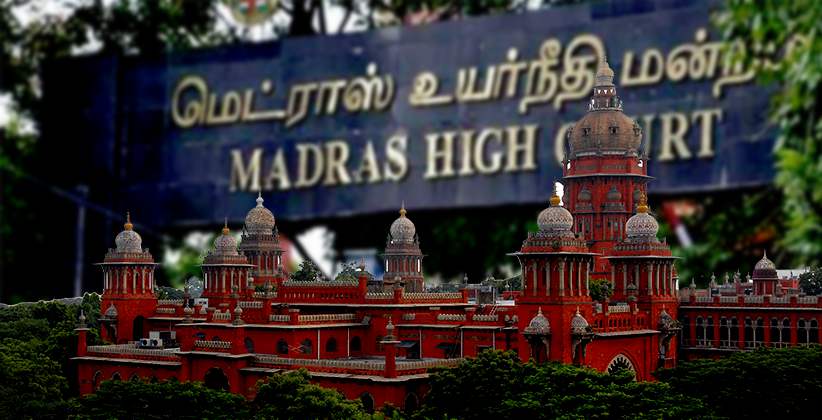Accused Does Not Have Absolute Right To Ask For Summoning Any Document: Madras High Court

The Madras High Court has recently observed that the accused under section 91 of the Code of Criminal Procedure,1973 does not have any absolute right to ask for summoning any document.
"Any party invoking Section 91 Cr.P.C., is bound to show the relevancy and necessity or desirability for the said documents. As already pointed out, the petitioner has nowhere stated about the necessity or desirability. Only when the Court, on a consideration of facts and circumstances, considers that the production of the document or thing sought for is necessary or desirable for the trial, enquiry or proceedings would summon the same, but not otherwise. Hence, it is to be seen only as to whether the trial Court has judiciously and judicially exercised its discretion", Single Bench of Justice K.Murali Shankar noted.
In the present matter, an FIR was registered against the petitioner in 2005, and the final report was filed in 2007 u/s 7,12 and 13 (2) r/w. 13(1)(d) of Prevention of Corruption Act, 1988. When the case was pending for defence evidence, the petitioner filed an application under section 91 of the Code of Criminal Procedure,1973 praying to send for four sets of documents allegedly from the custody of the Forest Department, Commercial Tax Department and from the Court of the Judicial Magistrate before the trial Court. The Trial Court dismissed the application and observed that the petitioner did not plead about the nature of documents sought and also did not state the reasons as to why he wanted the same. Thus, aggrieved by the Trial Court's impugned order, the petitioner approached this Court under Section 482 Cr. P.C to call for the records pertaining to the order dated 06.07.2020 passed by the Special Judge, Special Court for Trial for Cases under Prevention of Corruption Act, Tirunelveli.
The Court observed that the petitioner nowhere in his petition whispered about as to how the documents listed thereunder are connected with the case on hand, nature of the documents sought to be summoned, their bearing and relevancy for the nature of the consideration to be made as well as the necessity and desirability of the same. "The power conferred under Section 91 Cr.P.C., is aimed at arming the Court or any officer in charge of a police station to enforce and to ensure the production of any document or other things "necessary or desirable" for the purpose of any investigation, enquiry, trial or other proceedings under the Code, by issuing a summons or written order to those in possession of such material.", the Court further observed.
Thus, the Bench while dismissing the petition stated that the petition was filed only to protract and prolong the proceedings and that there was no infirmity in the impugned order.
The Court said
"Moreover, it is high time for the stakeholders of the Judiciary to refrain from making allegations or levelling charges against the Judicial officers without any basis or iota of truth. More importantly, since the bar and the Bench being the two sides of the same coin, the bar must discourage their clients and the litigant from raising baseless allegations, and they must desist from incorporating the same in the pleadings."
Case Title: A. Lakshmanan v. State rep. By Deputy Superintendent of Police, Vigilance and Anti Corruption, Tirunelveli
Law Point/Statue Involved: Section 91 of the Code of Criminal Procedure,1973
Access Copy of Judgment Here
